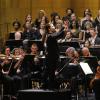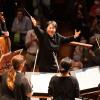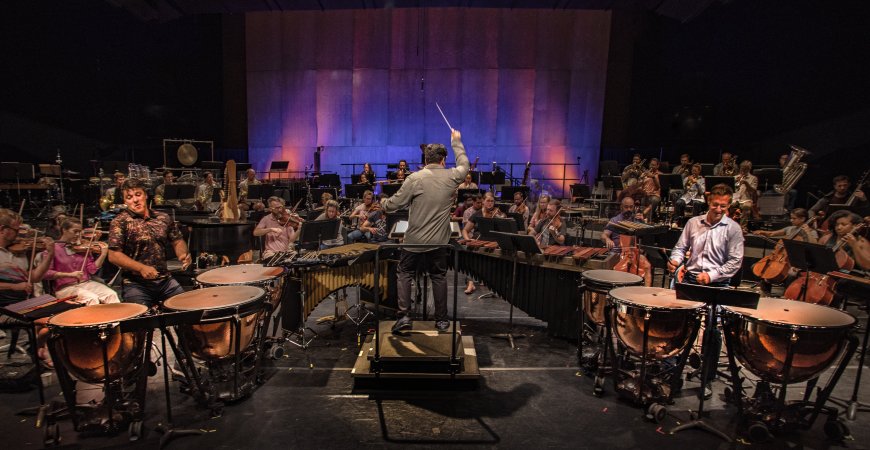
Beethoven’s Ninth Symphony is arguably the most popular and celebrated piece of classical music ever written. Russian anarchist Mikhail Bakunin once declared that "Everything will pass, and the world will perish but the Ninth Symphony will remain."
Its final movement, a setting of the idealistic Ode to Joy by the German romantic poet Friedrich Schiller, has become a universal anthem of protest, peace, and unity. Who can forget Leonard Bernstein's theatrical Ninth by the crumbling Berlin Wall in 1989, received with ecstatic enthusiasm by a crowd celebrating the end of Communist totalitarian rule?
The Ninth has inspired generations of composers since its premiere in Vienna on May 7, 1824. Among them is Serbian-American composer Aleksandra Vrebalov, whose orchestral work, This Kiss for the Whole World, will be performed on August 2 at the Cabrillo Festival of Contemporary Music in Santa Cruz during the "Chasing Light" program. The Festival runs through August 10 and is set to present a kaleidoscope of new music, including works by 20 different composers and three world premieres.
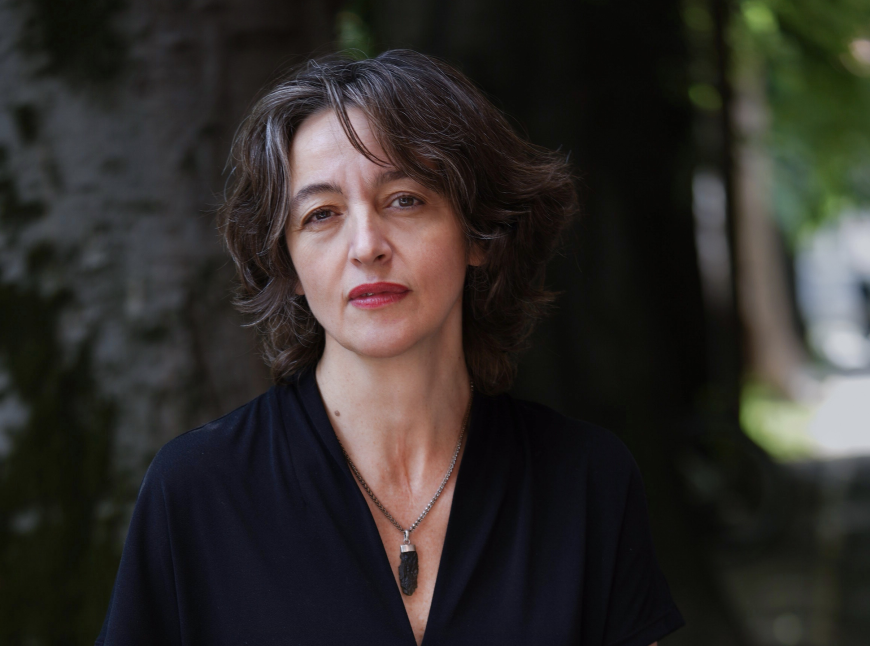
Born and educated in northern Serbia, Vrebalov became a U.S. citizen in 2014 and now divides her time between her hometown of Novi Sad (where she teaches in the Conservatory) and New York. She is no stranger to the Bay Area, having spent a year earning her master’s at the San Francisco Conservatory of Music from 1995-96.
This Kiss was originally commissioned by the Seattle Youth Orchestra as part of its celebration of Beethoven's 250th birth anniversary in 2020. COVID derailed those plans, but the work eventually premiered in 2022 at Seattle's Marrowstone Music Festival.
According to Vrebalov, her work does not seek to imitate or draw upon Beethoven's musical language, but rather upon his "humanistic side."
Vrebalov chose her title from a climactic moment in Schiller's text: "Be embraced, you millions! This kiss is for the whole world!" Beethoven sets this text in a surging unison line for male voices with orchestra, emphasizing the finale's passionate message of love and community. Beethoven was already ailing and almost completely deaf when he composed this final movement.
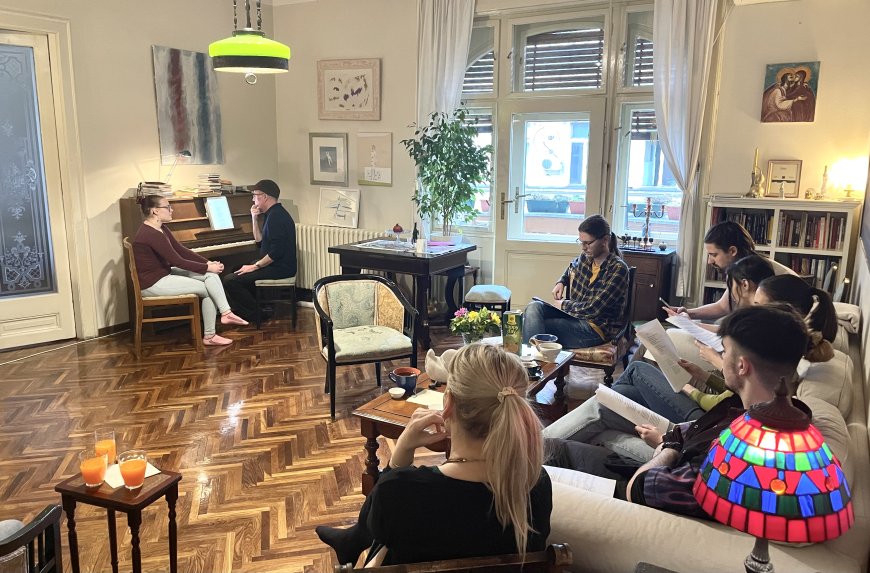
In a program note for the Cabrillo Festival, Vrebalov writes that she interprets a kiss "as a sign of an open heart, of acceptance that shows how mutual love and solidarity strengthen us against hardship and oppression. It also reflects how artists have always courageously responded to difficult times."
While speaking to San Francisco Classical Voice from Croatia, where she was on a working vacation, Vrebalov said that living through the "bad war between everybody" in former Yugoslavia in the early-1990s led her to cherish the Ninth Symphony's message that "only in unity can we prevail." Beethoven's plea remains relevant today because, as Vrebalov puts it, "when we are in political peril the main weapon used against us by rulers is the idea we are not all equal."
"It's hard to find a composer who wasn't influenced by the Ninth (positively or negatively)," said Matthew Guerrieri, author of The First Four Notes: Beethoven's Fifth and the Human Imagination, during a phone interview from Massachusetts with San Francisco Classical Voice. Richard Wagner famously called the Ninth Symphony "the mystical goal of all my strange thoughts and desires about music." Beethoven's influence so pervaded the musical world of Vienna after his death that critics called Johannes Brahms' First Symphony "Beethoven's Tenth."
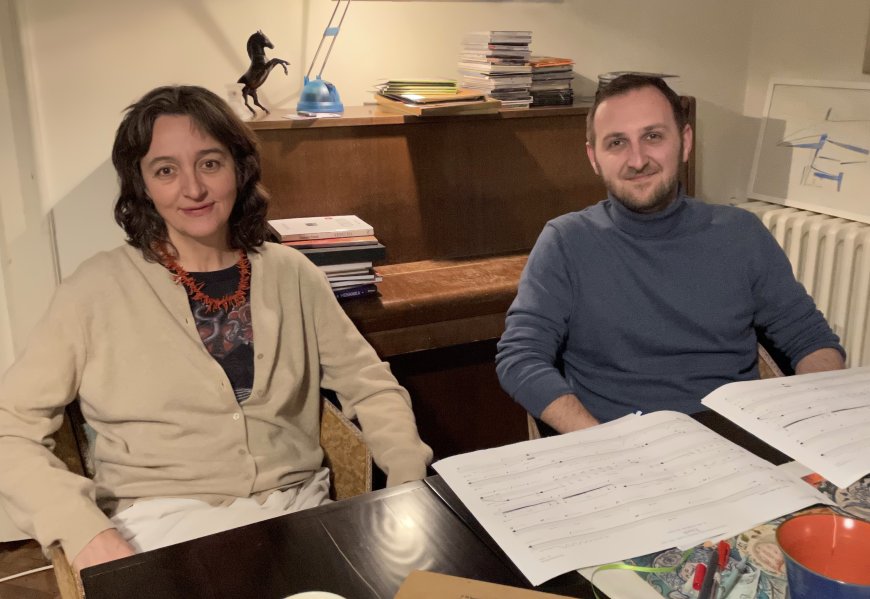
For Guerrieri, one of the most intriguing of the many musical responses to the Ninth came from British composer Michael Tippett. In his Third Symphony (1970-72), Tippett "got in the ring with Beethoven in a way few composers would dare.” Guerrieri said. In Tippett’s finale, he breaks the Ninth’s fanfare apart, leading into a series of idiosyncratic, stylized blues songs that directly interrogate the place and validity of Schiller's and Beethoven's idealism in a world in which joy and brotherhood can feel hard to come by.
"[Tippett’s work] feels confrontational and generous in the same way I imagine the first performances of the Ninth must have felt," Guerrieri said.
Beethoven's music has been a touchstone for Vrebalov throughout her career. "If I would have had a grandfather in music, it would have been Beethoven," Vrebalov said. She played his sonatas and sonatinas as a student, and was in "complete awe" when she first heard the Grosse Fuge, Op.133 as a teenager. "I was amazed at how far he went."
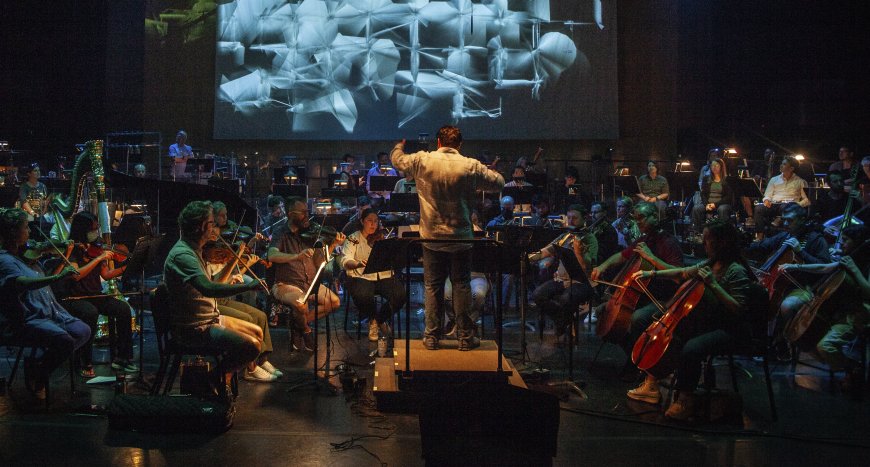
Scored for a large orchestra — including xylophone, vibraphone, bass drum, cymbal and timpani for added color — This Kiss gives considerable freedom to the players during numerous aleatoric moments that Vrebalov compares to a mosaic. The musicians are able to make choices about what they want to play within a loose framework.
Waltzes appear throughout the piece to, as Vrebalov put it, reflect the "youthful exuberance of the orchestral dance form." She often heard waltzes growing up given that the Viennese tradition was still strong in Vojvodina, formerly part of the Austro-Hungarian Empire.
Robert Kirzinger, a composer and Director of Program Publications for the Boston Symphony (BSO), has written extensively on Vrebalov's music. In an interview with San Francisco Classical Voice from his office at the BSO, Kirzinger said that This Kiss uses "techniques beyond strict notation, [combining] pastiche style and modernity, the smearing of sound. The waltz idea is kind of recurrent in her music as a marker for a certain kind of past."
For Vrebalov, the lesson of Beethoven’s Ninth, and what inspired her to write This Kiss, is that “patience, diligence, and sincerity will lead to success.”



